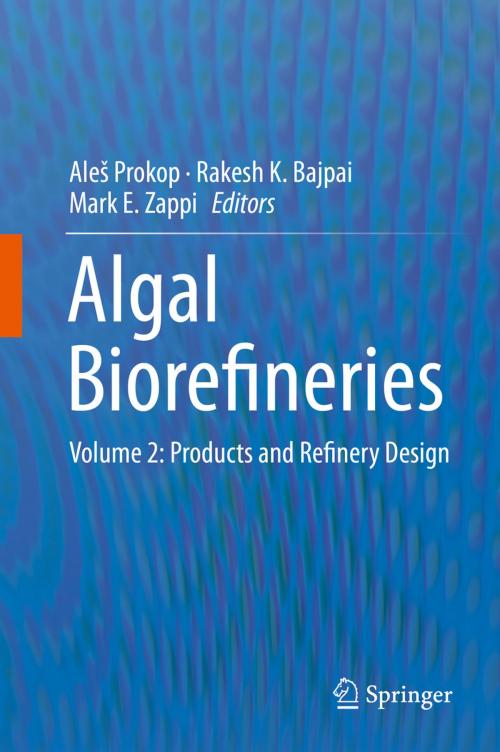Algal Biorefineries
Volume 2: Products and Refinery Design
Nonfiction, Science & Nature, Technology, Industrial Design, Science, Biological Sciences, Biotechnology, Health & Well Being, Medical| Author: | ISBN: | 9783319202006 | |
| Publisher: | Springer International Publishing | Publication: | October 19, 2015 |
| Imprint: | Springer | Language: | English |
| Author: | |
| ISBN: | 9783319202006 |
| Publisher: | Springer International Publishing |
| Publication: | October 19, 2015 |
| Imprint: | Springer |
| Language: | English |
Algae offer potential to produce renewable chemicals and fuels using solar energy and carbon dioxide from atmosphere or in flue gases while simultaneously reducing the generation of greenhouse gases. Since these can be grown on marginal lands with micronutrients and macronutrients often present in waste streams, algae-based chemicals and fuels do not compete with foods. Still large-scale production of algae-based fuels and chemicals faces considerable technological and economical challenges and it would by necessity require a biorefinery approach wherein all the possible algal components are converted into value-added compounds. The present series on algal biorefineries represents a forum for reporting the state of the art of different technologies as well as the latest advances in this field. The volume II of this series complements the volume I in terms of the current state of the art. Different chapters in this volume address diverse issues ranging from genetically modifies algae to new products to life-cycle analysis of algal products.
Algae offer potential to produce renewable chemicals and fuels using solar energy and carbon dioxide from atmosphere or in flue gases while simultaneously reducing the generation of greenhouse gases. Since these can be grown on marginal lands with micronutrients and macronutrients often present in waste streams, algae-based chemicals and fuels do not compete with foods. Still large-scale production of algae-based fuels and chemicals faces considerable technological and economical challenges and it would by necessity require a biorefinery approach wherein all the possible algal components are converted into value-added compounds. The present series on algal biorefineries represents a forum for reporting the state of the art of different technologies as well as the latest advances in this field. The volume II of this series complements the volume I in terms of the current state of the art. Different chapters in this volume address diverse issues ranging from genetically modifies algae to new products to life-cycle analysis of algal products.















